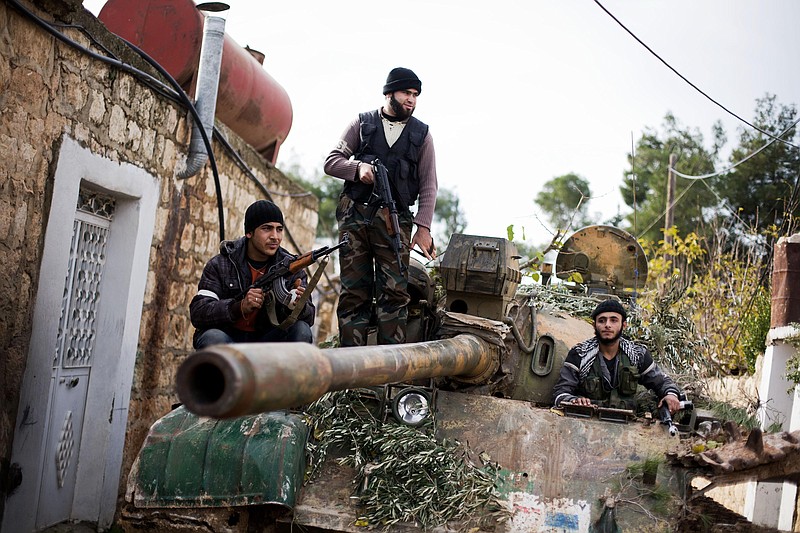BEIRUT (AP) - Syria's most powerful ally and protector, Russia, began positioning itself Thursday for the fall of President Bashar Assad, saying for the first time that rebels might overthrow him, and preparing to evacuate thousands of Russian citizens from the country.
The head of NATO echoed the Russian assessment, saying the Syrian government is near collapse following a nearly two-year conflict that has killed more than 40,000 people and threatened to ignite the Middle East. Assad appears to be running out of options, with insurgents at the gates of the capital and the country fracturing under the weight of a devastating civil war.
"An opposition victory can't be excluded, unfortunately, but it's necessary to look at the facts: There is a trend for the government to progressively lose control over an increasing part of the territory," Russian Deputy Foreign Minister Mikhail Bogdanov, Moscow's Middle East envoy, said during hearings at a Kremlin advisory body.
Still, Bogdanov gave no immediate signal that Russia would change its pro-Syria stance at the U.N. Security Council, where Moscow has shielded Damascus from world sanctions.
The U.S. commended Russia "for finally waking up to the reality and acknowledging that the regime's days are numbered," State Department spokeswoman Victoria Nuland said.
"We call on Russia to work with us ... work with the various stakeholders in Syria to start moving towards a transitional structure, and we would like to have their help in doing that," she added.
Russia's acknowledgment that Assad could lose the fight is an embarrassing blow to the regime, which describes the rebels as terrorists sent from abroad with no popular support.
But the rebels have made significant gains in recent weeks, seizing large swaths of territory in the north and expanding their control on the outskirts of the capital, pushing the fight closer to Assad's seat of power.
The opposition still faces enormous obstacles, however, including the fact that some of its greatest battlefield successes are by extremist groups the West does not want to see running Syria - something that could hamper international support.
On Wednesday, the U.S., Europe and their allies recognized the newly reorganized opposition leadership, giving it a stamp of credibility even though it remains to be seen if the new bloc holds much sway with the fighters on the ground.
At the same time, the regime has come under fresh condemnation as Western officials raise concerns that Assad might use chemical weapons against rebels in an act of desperation. The U.S. and NATO also say Assad's forces have fired Scud missiles at rebel areas.
"We can't confirm details of the missiles, but some of the information indicates they were Scud-type missiles," NATO Secretary-General Anders Fogh Rasmussen said Thursday in Brussels. "In general, I think the regime in Damascus is approaching collapse. I think now it's only a question of time."
Syria denied the Scud allegations. The government also has been careful not to confirm it has chemical weapons, while insisting it would never use such weapons against its own people. Syria is believed to have a formidable arsenal of chemical weapons, including sarin and mustard gas, although the exact dimensions are not known.
At Thursday's hearings in Moscow, Bogdanov said the Foreign Ministry is preparing evacuation plans for thousands of its citizens, most of whom are Russian women, married to Syrian men, and their children.
"We are dealing with issues related to the preparation for evacuation," Bogdanov said. "We have mobilization plans. We are finding out where our citizens are."

